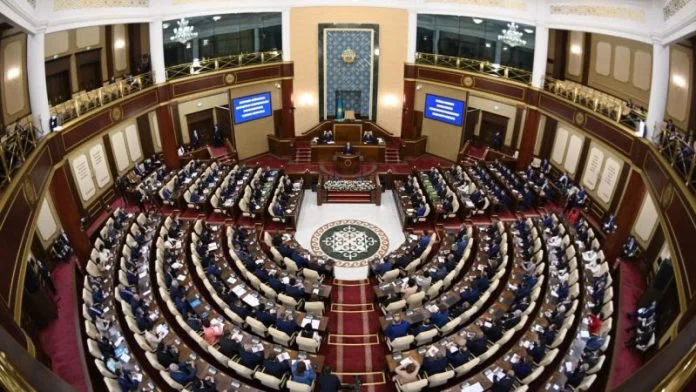Kazakhstan’s new parliament could usher in green energy, rare earth investments
Ecology and Natural Resources Minister Zulfiya Suleimenova spoke about Kazakhstan’s energy transition

Following deadly riots that rocked the political establishment in January 2022, Kazakhstan has responded by implementing key reforms, including amending its constitution and introducing registration rules for political parties and electoral legislation. The threshold to enter the Mazhilis has also been reduced to 5 percent, with a 30 percent quota in place for women, young people and those with special needs. These numbers go beyond the party lists, but also for the distribution of mandates, to ensure wider representation in parliament of all groups in Kazakhstan.
Observers from the Organization for Security and Co-operation in Europe said the parliamentary elections help bring Kazakhstan closer to holding elections that are in line with international standards. The Organization, or OSCE, welcomed the improvements, including those related to election laws, but said attention to protect citizens’ fundamental freedoms is still needed.
The OSCE – the world’s largest regional security-oriented intergovernmental organization, whose mandate includes overseeing arms control, the promotion of human rights, freedom of the press, as well as free and fair elections – also wants to see the results for each polling station released publicly in future elections.
Wider ramifications
For many, these elections provide Kazakhstan with a window to accelerate the expansive overhaul of its electoral system, while further bolstering the national democratization mandate put forward by the current government, Deputy Foreign Minister Roman Vassilenko said in the nation’s capital, Astana on March 16.
Advertisement“As far as the new parliament is concerned, they will be asked to review several important pieces of legislation before the end of this year … including the new tax and social (security) codes, but the tax code is directly related to how the markets work. The government’s plan is to continue to further liberalize – to streamline – the tax administration in order to provide an even more conducive environment for both domestic and foreign business,” said Vasilenko.
‘New Kazakhstan’ seeks new energy solutions
Ecology and Natural Resources Minister Zulfiya Suleimenova said she is looking forward to tough, dynamic discussions when it comes to the country’s new parliament.
“I was a member of parliament in the past. There are now very dynamic discussions (going on). Having a more diverse parliament means bringing (in) new perspectives to the parliament and the legislation-making process. We are excited. We are looking forward to working with the new parliament,” the 32-year-old politician told NE Global on March 17.
Astana hopes to achieve carbon neutrality by 2060
Suleimenova told NE Global that Kazakhstan plans to pursue decarbonization, energy transition and green hydrogen.
“We have adopted a strategy on the transition to carbon neutrality for 2060, and that would be possible by basically phasing down – hopefully, completely phasing out by 2060 – coal … and moving towards renewable energy,” she said in comments prior to her departure for New York for the UN’s Water Conference. “Kazakhstan wants to be part of the solution.”
Share this article:



